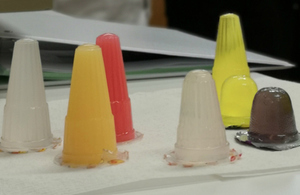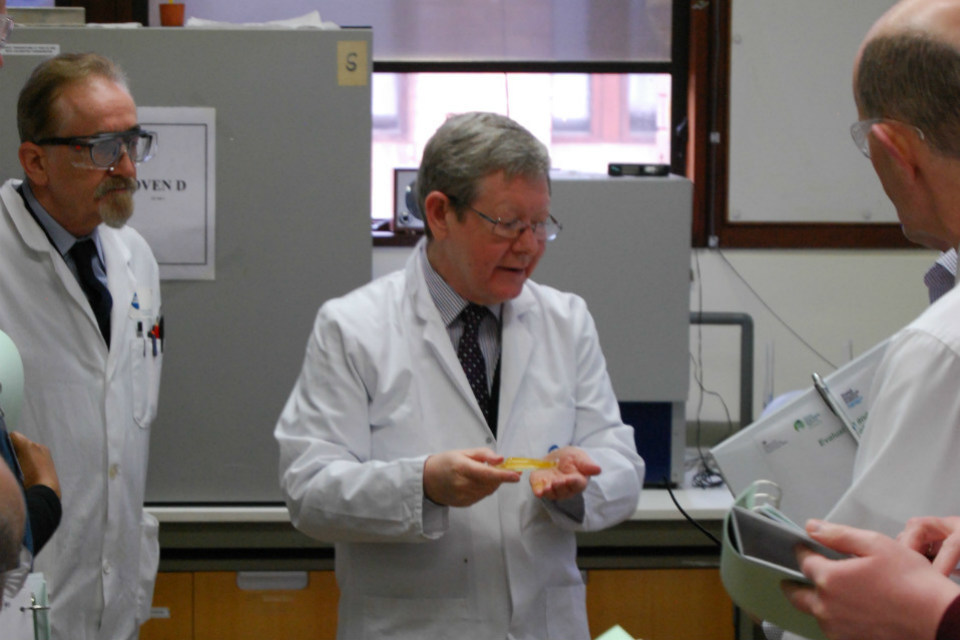Successful workshop on assessment of jelly mini-cups
The Government Chemist team run a very well received workshop providing practical knowledge for assessing the conformity of confectionery items known as jelly mini-cups

Different types of jelly min-cups
What is a jelly mini-cup?
Jelly mini-cup confectionery is defined according to Regulation (EC) No 1333/2008, as “jelly confectionery of a firm consistence, contained in semi rigid mini-cups or mini-capsules, intended to be ingested in a single bite by exerting pressure on the mini-cups or mini-capsule to project the confectionery into the mouth”.
Although the definition seems straightforward, it poses several difficulties, for example what does ‘firm consistence’ mean and how should ‘intended to be ingested in a single bite’ be interpreted? These difficulties have been the basis for disputes and requests for advice for the Government Chemist team for a number of years.
Food additive law bans the use of a range of gel-forming compounds in such products to avoid the possibility of ‘plugging’ the airway. Disputes arise, not about the presence of the additives, but about the definition of the product in which they are banned. If a jelly confectionery product conforms to the definition of a jelly mini-cup, it must not contain the banned gel forming additives.
Workshop on assessment of jelly cups
As a consequence of our involvement in assisting the authorities and businesses to interpret the relevant legislation since 2004, we have gathered extensive expertise in the evaluation and assessment of these confectionery items. We organised a workshop covering advice and guidance to interested groups on the assessment and evaluation that took place on 13 March at LGC in Teddington with the aim of disseminating that expertise.

Michael Walker in the laboratory demonstrating practical aspects of the assessment of jelly mini-cups
The workshop was oversubscribed, attended by 22 delegates representing enforcement offices (Trading Standard Officers and Environmental Health Officers), Public Analysts and traders. The workshop included talks by Selvarani Elahi, Michael Walker and Ian Axford (expert in Consumer Safety Regulation) and practical sessions in the laboratory. There was a good deal of exchange of information and opinion and the feedback was very positive.
The event helped clarify the thinking about emerging ‘borderline compliant’ products appearing on the market and enhanced significantly the consistency with which this choking hazard will be regulated in the future.
For more information on the event or the work that we do contact:
Government Chemist
Priestley Building
10 Priestley Road
Guildford
Surrey
GU27XY